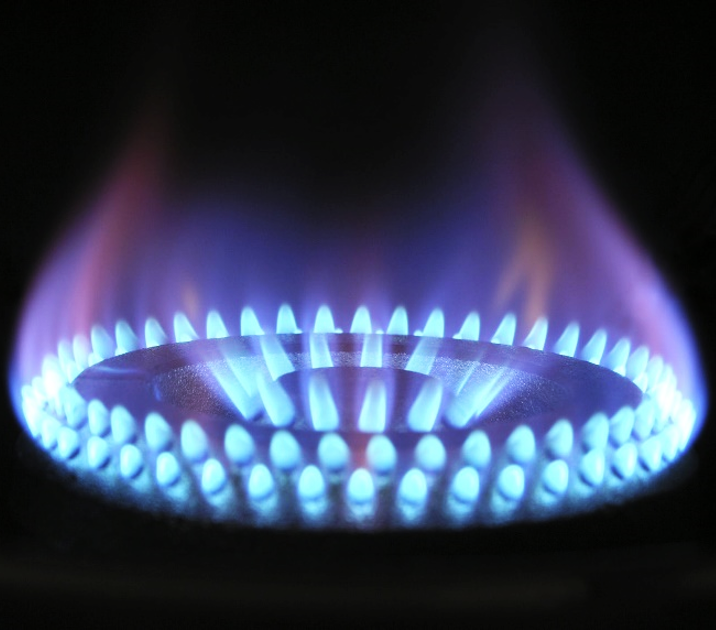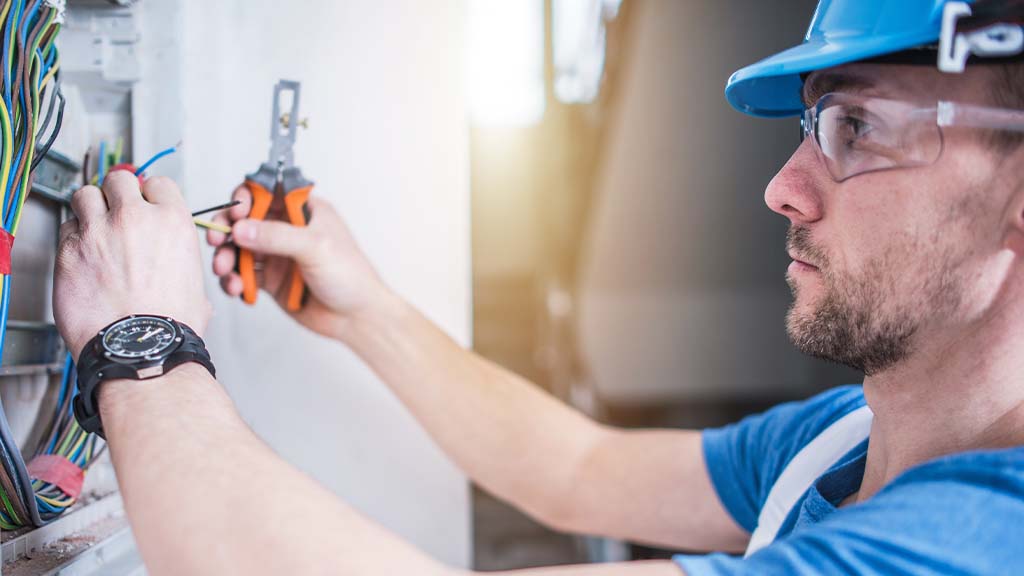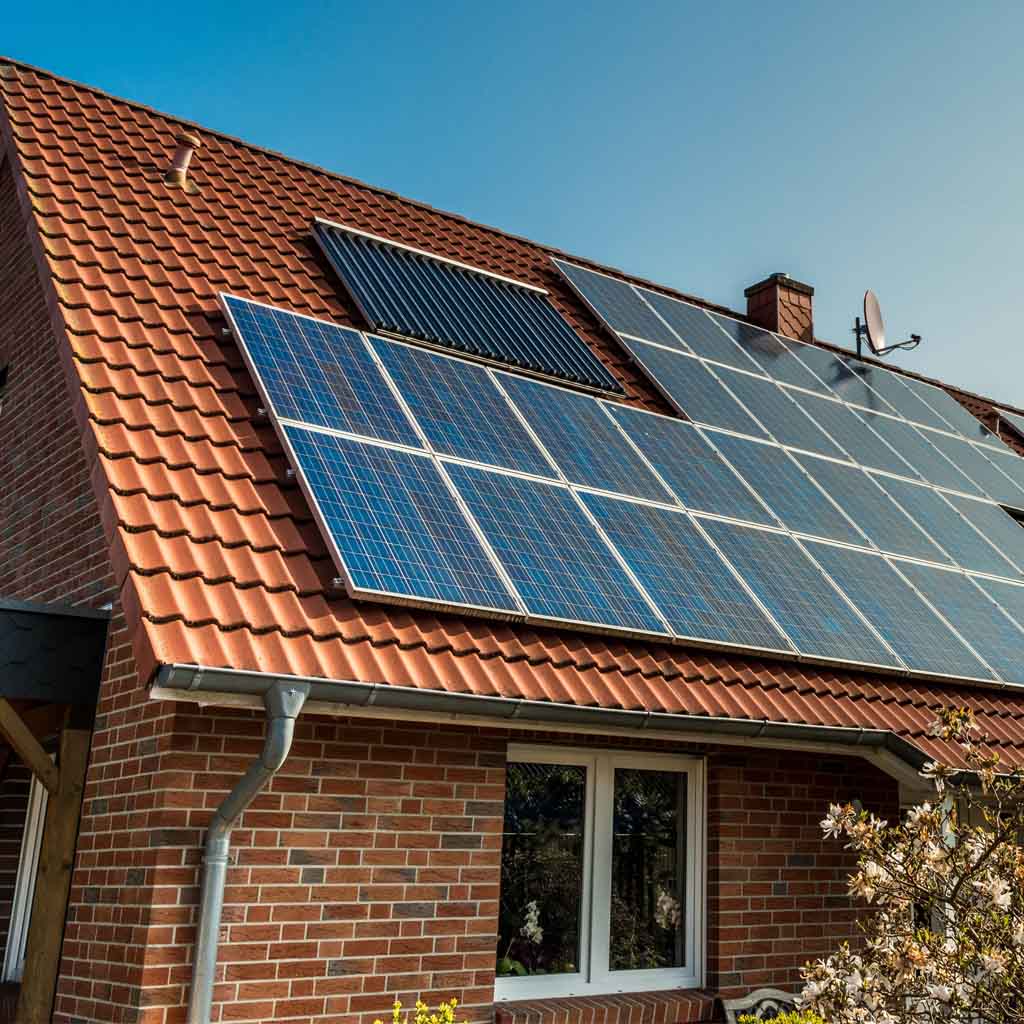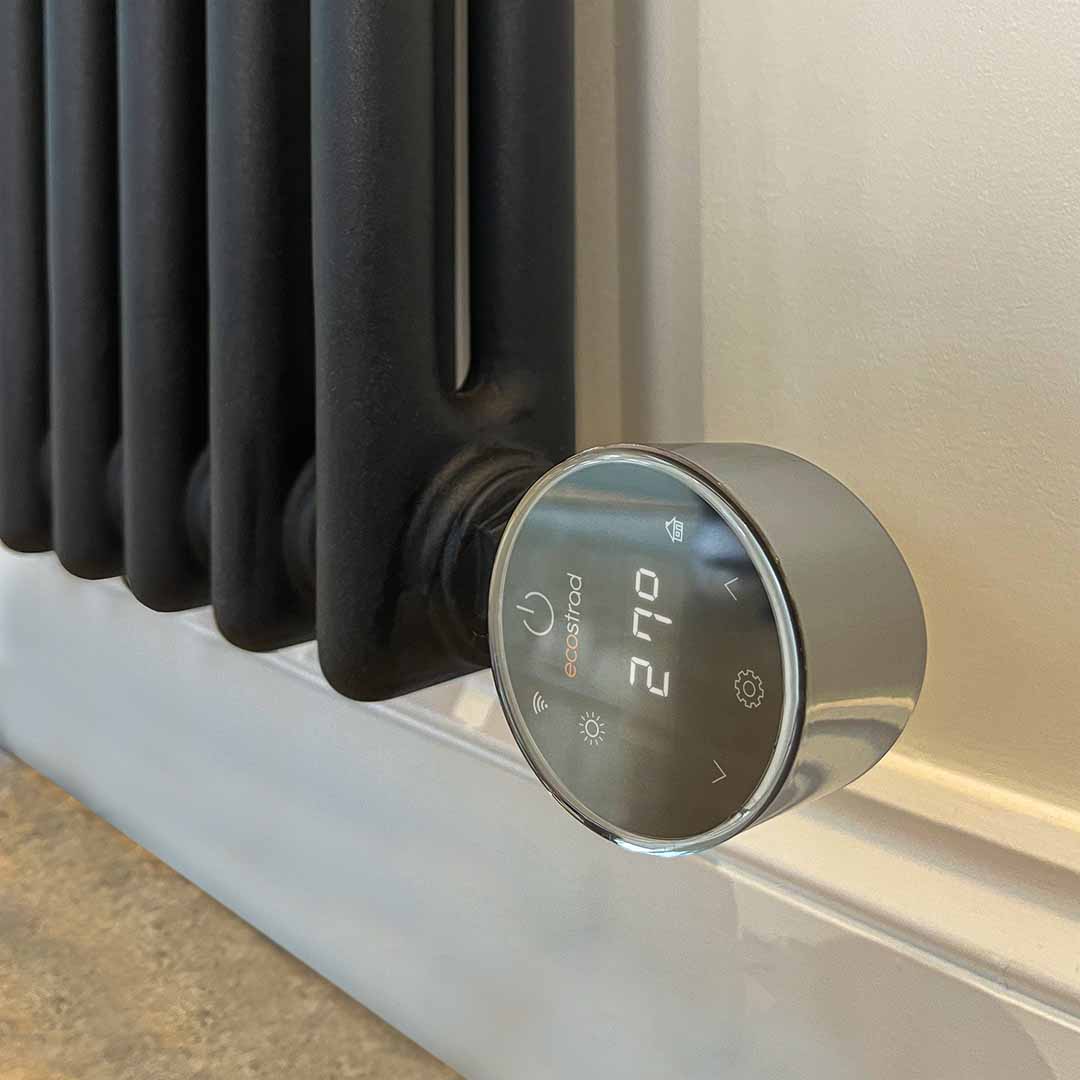

Last updated: February 2023
Finding the cheapest option is usually what many of life’s decisions are based on. No one wants to waste money if there’s an affordable alternative - and rightly so. The same probably goes for your home heating system, which is why it’s a good idea to weigh up your options.
In the gas versus electric debate, traditionally, gas is thought to be the cheaper way of heating your home. When considering cost-effectiveness, however, electric heating may just come out on top. If you need some assistance in deciding which route to go down, we’re on hand to help.
What’s the difference between gas and electric heating?


Gas central heating
Gas central heating systems depend on a central boiler. The boiler warms the water inside of it, then distributes the heat through a network of pipes and into the radiators. This warms your entire home. Gas central heating works like a circuit - the boiler is connected to the radiators through a set of adjoining pipes, and water is distributed by a pump. As such, if something goes wrong with one element, like the boiler, the whole system is affected - and anyone who has used central heating can attest to the chaos that ensues!


Electric heating
For electric heating, each appliance works independently, because they have been fitted with their own individual thermostats. So, if there’s a problem with one appliance or its power source, it won’t affect the rest of the heating in your home. This modular heating method also means each unit can be operated individually - the whole network doesn’t need to be switched on simply to warm one specific spot. Powered by electricity, these heaters use a combination of convection and radiation to supply responsive yet lasting warmth, which is achieved through different means. Some have ceramic cores with heat-retentive capabilities, some are pre-filled with thermodynamic oil that heats fast but cools slowly and others use a highly responsive aluminium X bar element.
In summary:
Despite gas currently being the most common form of heating in the UK, the exciting evolutions of electrical mean the demand for it is increasing daily.
How do the gas and electric heating costs compare?
It’s no secret that gas is a cheaper energy source to purchase than electricity. One unit of gas costs around 10p/kWh and one unit of electricity is roughly 34p/kWh. Although the purchase price favours gas, there are far more factors to consider than just the energy costs, such as:
1. Installation
Gas central heating systems always require a professional installation with extensive pipework, which is often an incredibly time-consuming task. These systems can take several weeks to set up and they're pricey to install, meaning a much higher upfront investment.


Electric heaters are much easier to set up and many can be installed yourself, without having to call in professional electricians or pay installation costs. All you need to do is attach them to the wall, plug them into the nearest socket, and you’re all set.


Alternatively, you can opt to have your heating hardwired to the mains by a professional electrician. Hardwiring a radiator is a much simpler job for an electrician than plumbing a gas central heating radiator is for a plumber, and this is reflected in the cost. Professional electric heating installation is best for those who want electric heating fitted throughout their home. It will also give your heating a more seamless appearance.
DIY installation or hardwiring? It’s a case-by-case consideration. This clip gives a quick rundown of what hardwiring an electric radiator means, how it’s carried out, and when to know if it’s necessary for your circumstances.
In summary:
Electric heating is much cheaper and easier to install than gas, with fewer steps needed to get it up and running.


2. Efficiency
Although gas is a cheaper energy source per unit, electric heating is 100% efficient at point of use. This means every watt of electricity used by the heater is converted into heat. Nothing is wasted, so there’s no need to worry about where your money’s going. Although electric has a steeper upfront cost per kWh, you’ll need more units of gas in order to reach the same level of efficiency as electric. When paired with a renewable energy source, like wind or solar, electric heaters are totally efficient from start to finish - a brilliant bonus for your carbon footprint.
Gas central heating incurs system losses, which naturally occur at the point of combustion, as well as across the pipe network. Up to 50% of the heat produced by the boiler can be lost through the pipes, especially if they’re not well insulated. This means you end up paying for warmth that has simply gone to waste.
When it comes to heating, efficiency matters – and unlike gas, electric heating is 100% efficient at point of use. For the hows and whys, check out this quick clip.
In summary:
Gas is cheaper per unit however electric heating boasts 100% efficiency without any system losses.
3. Heat management
Gas central heating predominantly uses centralised control, meaning all of your radiators are managed collectively. So, you end up heating your entire house when you only really need your living room to be warm. As a result, you waste both energy and money, heating areas of the property that may not be in use.
Not to fear though, this isn’t the case for electric heating. Many appliances are fitted with individual thermostats, so you can manage each one separately. This means you can set a different temperature and heating schedule in each room of the house without heating spaces unnecessarily. With our many intelligent app-controlled heaters, you can do this in a few easy taps.
Accurate and convenient control comes as standard with all of our electric radiators. Built for the modern home, they’re loaded with features that keep energy and time efficiency in mind.
In summary:
If you only need centralised control, gas might just be the one. However, electric heaters allow you to manage your heating on an individual level – a much more efficient and ultimately cheaper alternative.
4. Smart control
Many modern electric heaters come with sophisticated controls for improved convenience and better efficiency, which is already above and beyond gas central heating systems. Smart electric heaters, however, are one step ahead. They give you access to a variety of energy-saving features such as energy usage statistics and adaptive start. These features allow you to see where you can make changes to reduce your energy consumption and pre-heat your home ahead of your set schedule.
WiFi programming provides full distance control over your heating through an app on your phone. This means making changes to your heating remotely, no matter where you are in the world. If you happen to leave your heating on when you’re out and about, you can switch it off with a few simple taps. There’s no need to worry about wasting energy or racking up those electricity bills.
In summary:
Gas central heating can be used with an external smart thermostat, whereas electric heating often comes with these controls built-in, allowing for a wealth of energy-saving features.
5. Maintenance costs
To ensure their safety, gas boilers require servicing once a year to avoid the risk of carbon monoxide leaks. In some cases, this can price up to £150, which is a hefty annual cost. Gas boilers are also known to have pipework leaks, meaning plumber callouts may be necessary, again adding to your expenses.
As electric heaters are powered through the mains of your home, it means they're virtually maintenance-free and don’t require any servicing. As no fuel is combusted in their heating process, there’s no requirement for any annual maintenance checks, giving you a neat yearly saving. All that’s needed is a quick wipe down of the unit every so often with a dry, soft cloth, to ensure the unit remains clean and dust-free. A far more relaxing way of heating your property, that will save you money in the long run.
With no moving parts, boiler connection, or reliance on combustible fuel, electric radiators are amongst the safest heating solutions out there. So, how much maintenance do they actually need – if any?
In summary:
Although gas only needs servicing once a year, electric heating requires no such maintenance check, making it the cheaper option in this scenario.
6. The life expectancy of gas vs. electric heating
The life expectancy of a modern gas boiler is around 15-20 years, meaning a new replacement boiler would have to be installed at some point. With plans in place to phase out gas central heating completely in the UK, a replacement gas system may have to come sooner than you think.
To reduce the UK’s CO2 emissions, gas boilers are set to be banned by 2025 in favour of carbon-friendlier alternatives. Going with the more futureproof choice by installing electric heating means there’s no need to worry about this, as it’s already a carbon-neutral solution. As the bodies of electric radiators have no moving parts, they’re known to last longer. Many of our products offer long warranties, meaning no future costs looming over you. For example, our RC Wave Electric Radiator provides a lifetime guarantee on the body of the radiator, meaning no unexpected costs down the line.
As standalone appliances, if one electric radiator fails, you won’t need to replace and entire system. You’ll also never be left without a heated home whilst the radiator is getting replaced, as you can shuffle your heaters around to keep warm. Whereas with gas, if the system breaks, your whole house is cold.
In summary:
Gas boilers are known for their long-lasting lifespans, but with plans to ban them in new homes from 2025, they no longer have the future-proof status of electric heating.
In this vide we're comparing the two for efficiency, control, maintenance and running costs to find out once and for all which heating system deserves the top spot.
Decision time – gas or electric?
When deciding between gas and electric, it’s beneficial to consider the long-term versatility of your heating system. Electric heating has fewer future expenses, meaning that over time it’ll be saving you money. It’s kinder to the environment and simple to install - so it's easy to see the benefits of choosing electric heating over gas.
Key learnings
-
Electric radiators require very little maintenance and are installed quickly and easily - great for both your pocket and your free time.
-
Electric heating is able to be totally sustainable when paired with renewables, and does not rely on the Earth’s dwindling natural resources.
-
Whilst gas is cheaper per kWh, around 50% can be wasted through transmission. Electric heating is 100% efficient from point of use, wasting nothing.









